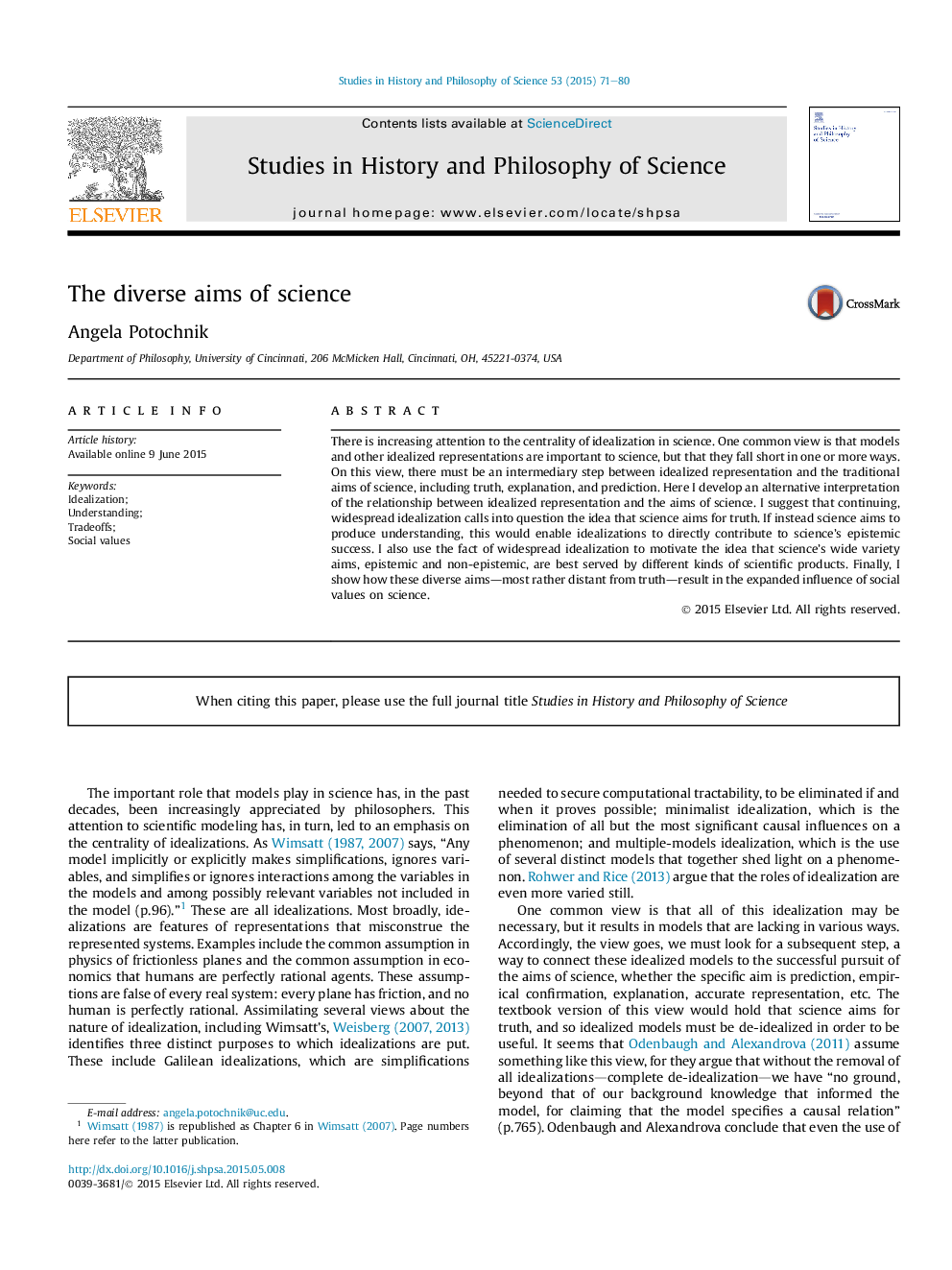| Article ID | Journal | Published Year | Pages | File Type |
|---|---|---|---|---|
| 1160409 | Studies in History and Philosophy of Science Part A | 2015 | 10 Pages |
Abstract
There is increasing attention to the centrality of idealization in science. One common view is that models and other idealized representations are important to science, but that they fall short in one or more ways. On this view, there must be an intermediary step between idealized representation and the traditional aims of science, including truth, explanation, and prediction. Here I develop an alternative interpretation of the relationship between idealized representation and the aims of science. I suggest that continuing, widespread idealization calls into question the idea that science aims for truth. If instead science aims to produce understanding, this would enable idealizations to directly contribute to science's epistemic success. I also use the fact of widespread idealization to motivate the idea that science's wide variety aims, epistemic and non-epistemic, are best served by different kinds of scientific products. Finally, I show how these diverse aims-most rather distant from truth-result in the expanded influence of social values on science.
Related Topics
Social Sciences and Humanities
Arts and Humanities
History
Authors
Angela Potochnik,
